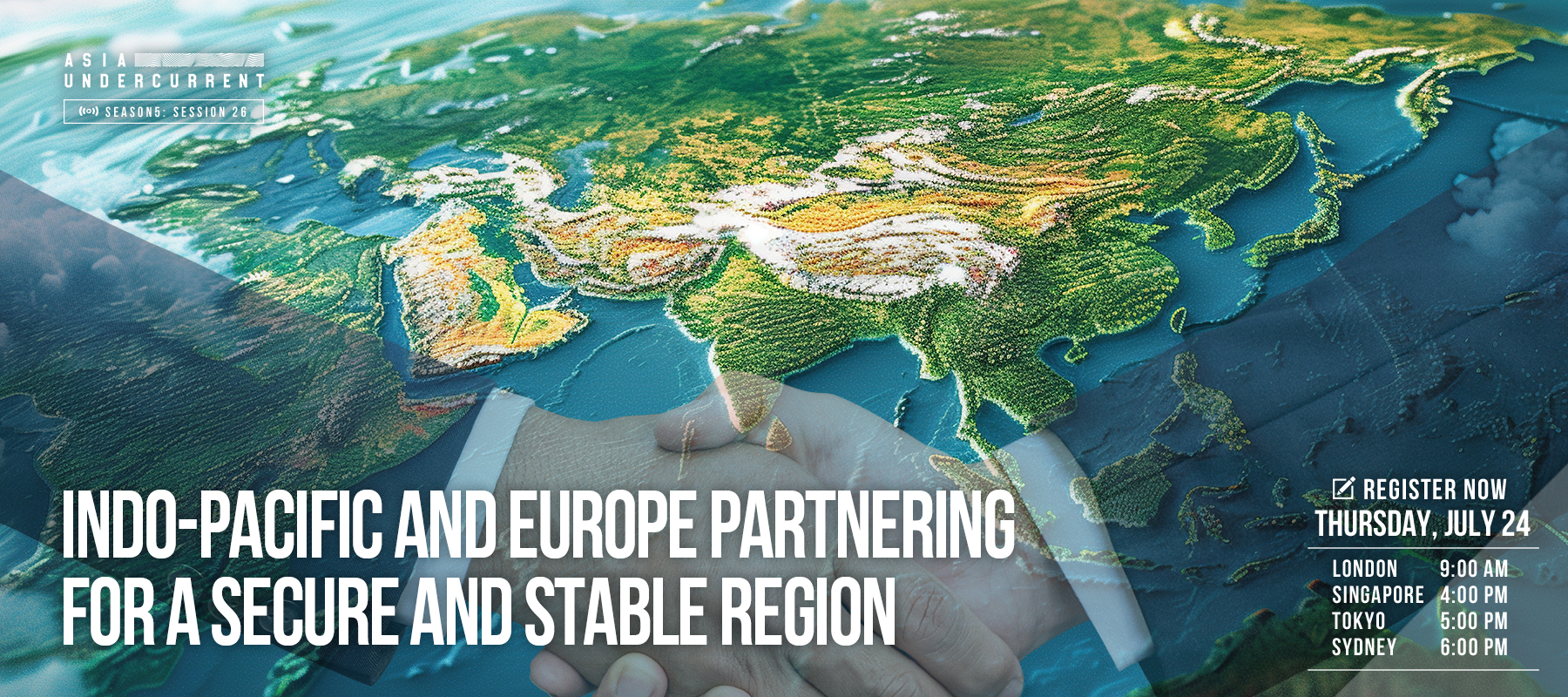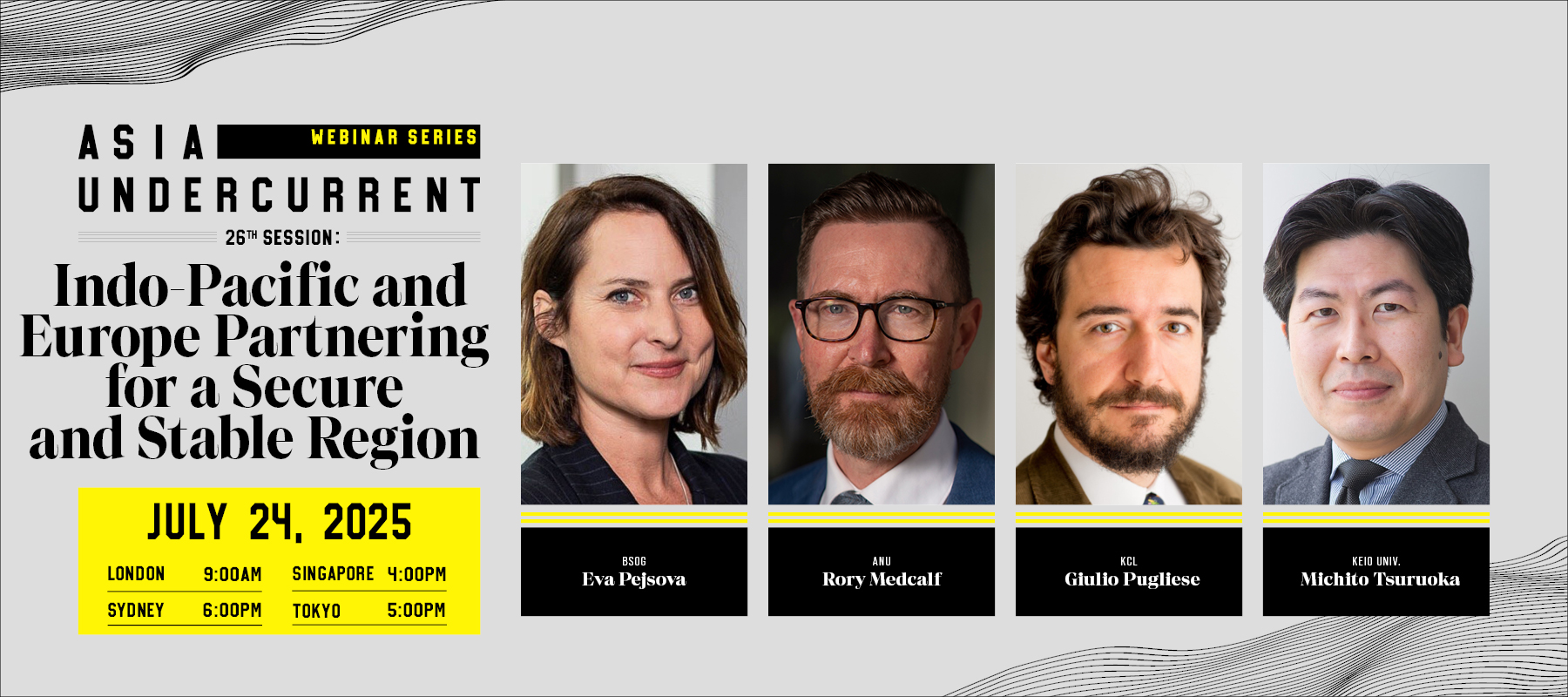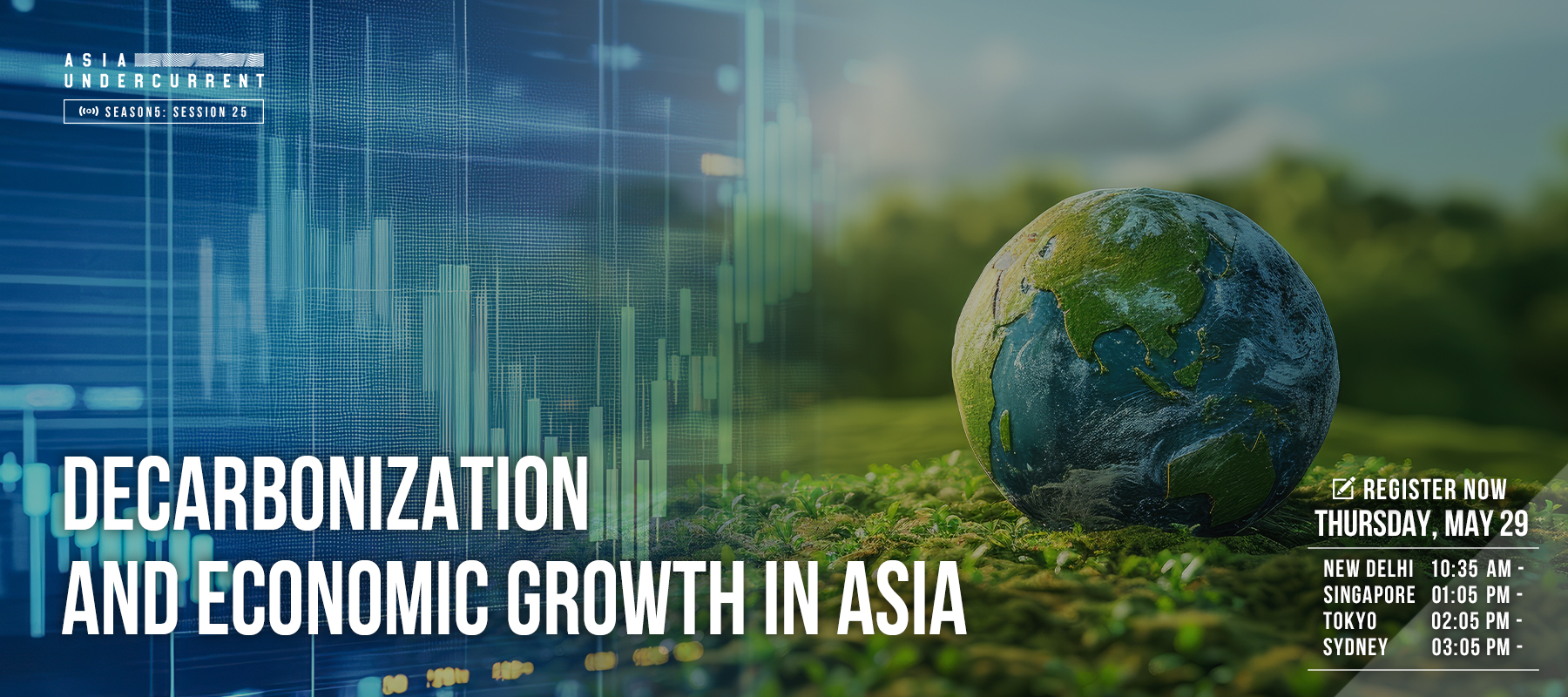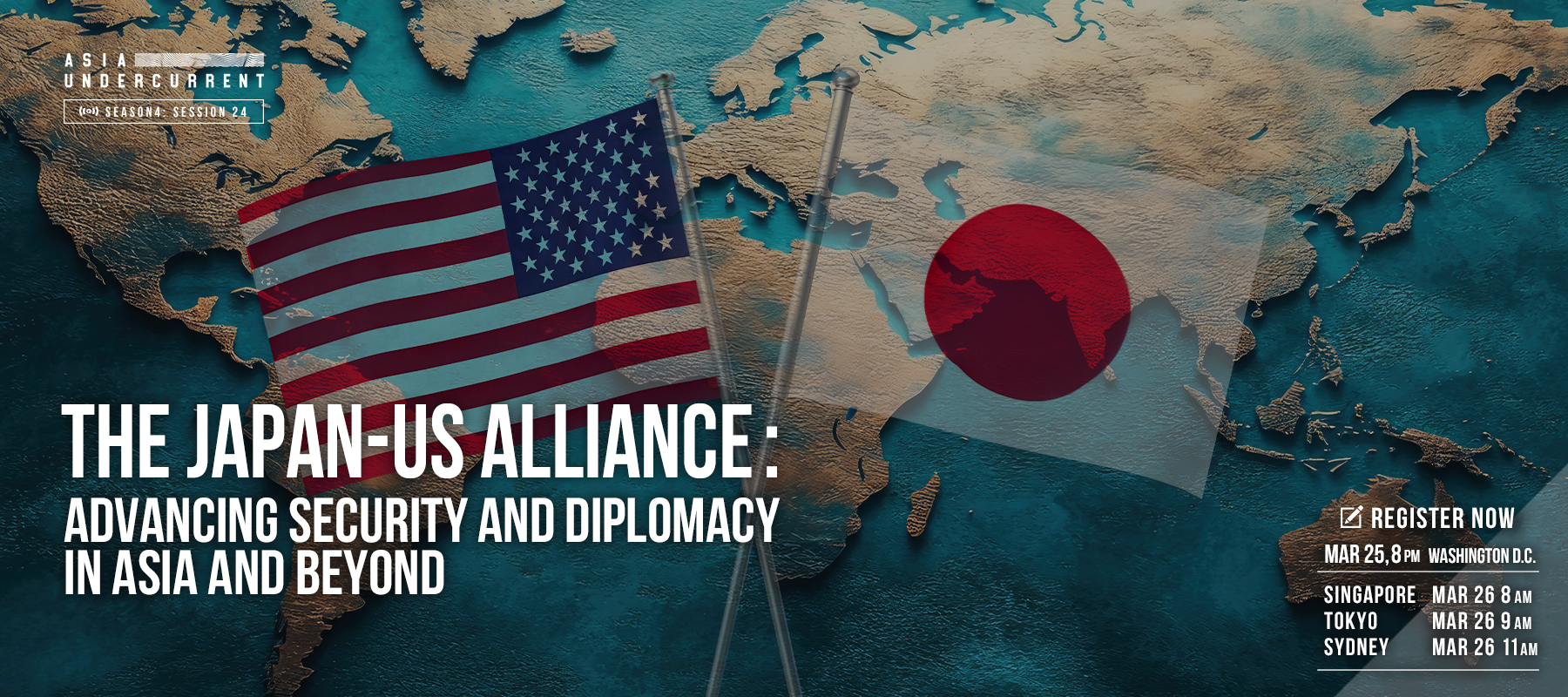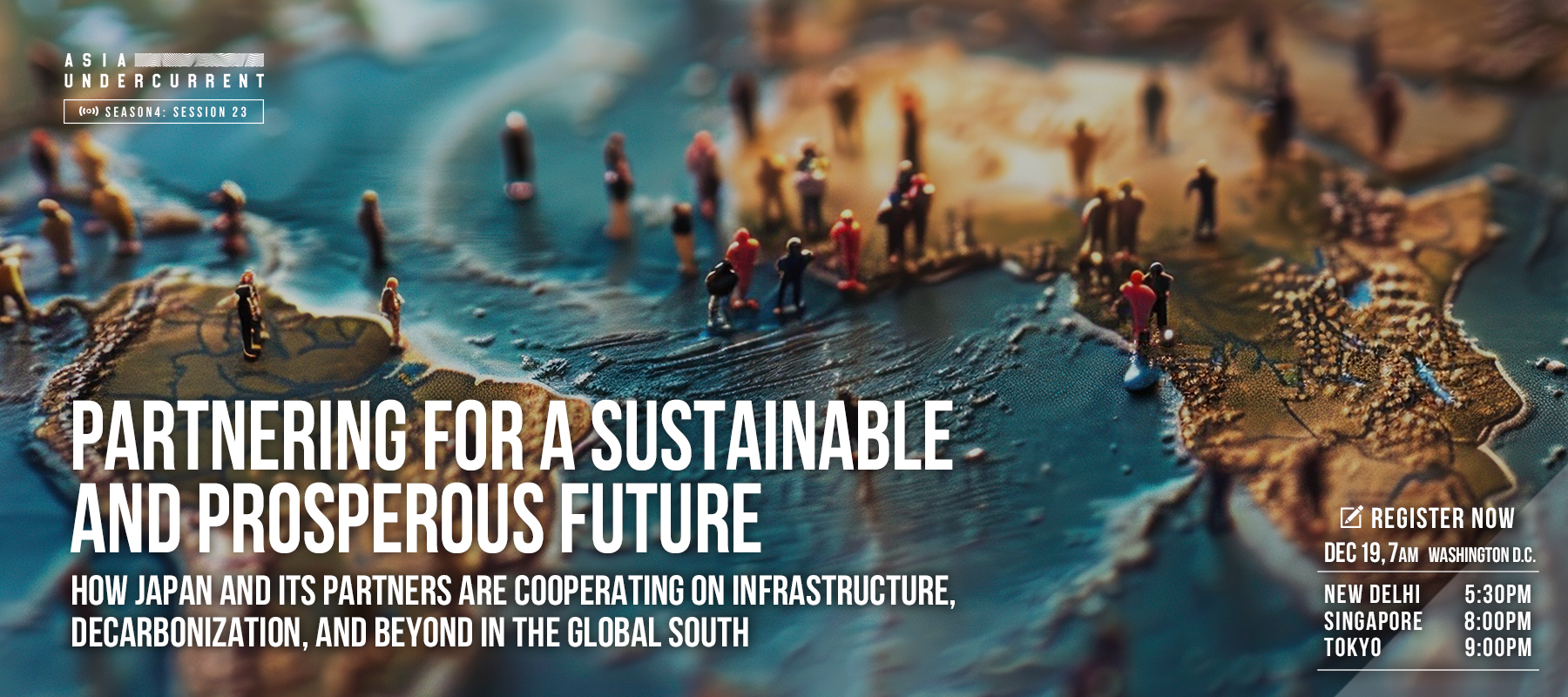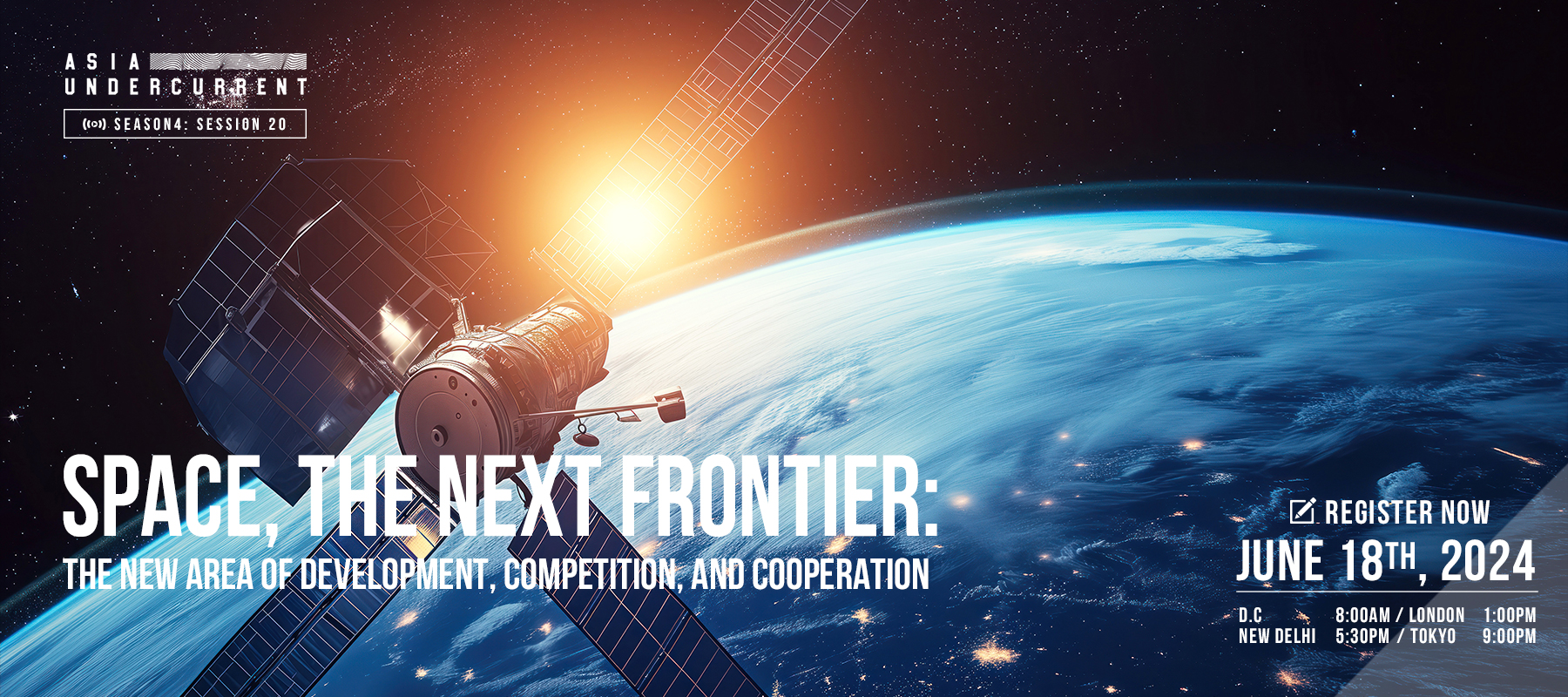Asia’s remarkable economic and geopolitical transformation is reshaping our world. Shifting demographics and ever-advancing industrialization make the region more complex and dynamic than ever before. At a time when economics, politics, and ideology are both converging and competing, a deep understanding of Asia’s trends and trajectory is an indispensable asset.
MOREASIA UNDERCURRENT SEASON5
- SESSION 26 -
For centuries, Europe and the Indo-Pacific have been connected through rich cultural and commercial exchanges. Now, in our new age of geopolitical uncertainty and conflict in areas like Ukraine and the Middle East, the nations of the Indo-Pacific and Europe have recognized the growing need to engage with a wider array of regions and partners, thus finding new impetus to renew these historical ties and enhance cooperation.
Under the increasingly severe and complex security environment, Japan has become more proactive to explore new opportunities for cooperation with its European partners including the EU and UK. The momentum of cooperation emerging between Japan and Europe spans a wide range of areas including security and defense, and economic security among others. This trend comes as Europeans are increasingly turning their attention eastward based on the recognition that the security of Europe and Indo-Pacific is inseparable.
But even as new opportunities for both regions appear, major questions remain. How can Japan and Europe strengthen defense cooperation in the Indo-Pacific, while key Indo-Pacific players are cooperating more closely than ever amongst themselves to promote peace and security of the region? Moreover, how can European countries, located oceans away and facing their own domestic security challenges and the need to expand defense spending for NATO members, effectively contribute to defense in the Indo-Pacific? Can cross-border frameworks help to bolster countries’ economic security through strengthening supply chain resilience and advancing capacity building? And finally, how might traditional multilateralism, long shared by Europe and the Indo-Pacific, evolve so it can be effective in addressing current and future challenges?
...read more ☒
To explore and debate these complex issues, our team of experts will examine how ongoing geopolitical shifts are informing Europe and the Indo-Pacific's long-distance relationship, and what may be in store for the future. Our webinar will be moderated by Dr. Eva Pejsova (Japan Chair at the Centre for Security, Diplomacy and Strategy [CSDS] of the Brussels School of Governance [BSoG]) and feature Prof. Rory Medcalf (Head, National Security College, Australian National University), Dr. Giulio Pugliese (Lecturer in Strategic Communications at King's College London and the Director of the EU-Asia Project at the European University Institute [EUI]), and Dr. Michito Tsuruoka (Professor at the Faculty of Policy Management, Keio University and Deputy Director of Keio Center for Strategy [KCS]) to help us gain insight into this rapidly evolving environment.
This 75-minute live webinar will include commentary, debate, and live Q&A from the audience. We hope that you can join us for what is sure to be a lively and insightful discussion about the role of Europe and its Indo-Pacific partners in creating a more secure and stable region.
OUTLINE
- Date & Time:
-
Thursday, July 24
London
9:00 am - 10:15 am
Singapore
4:00 pm - 5:15 pm
Tokyo
5:00 pm - 6:15 pm
Sydney
6:00 pm - 7:15 pm
- Location:
-
LIVE STREAMING
- Fee:
-
FREE OF CHARGE
